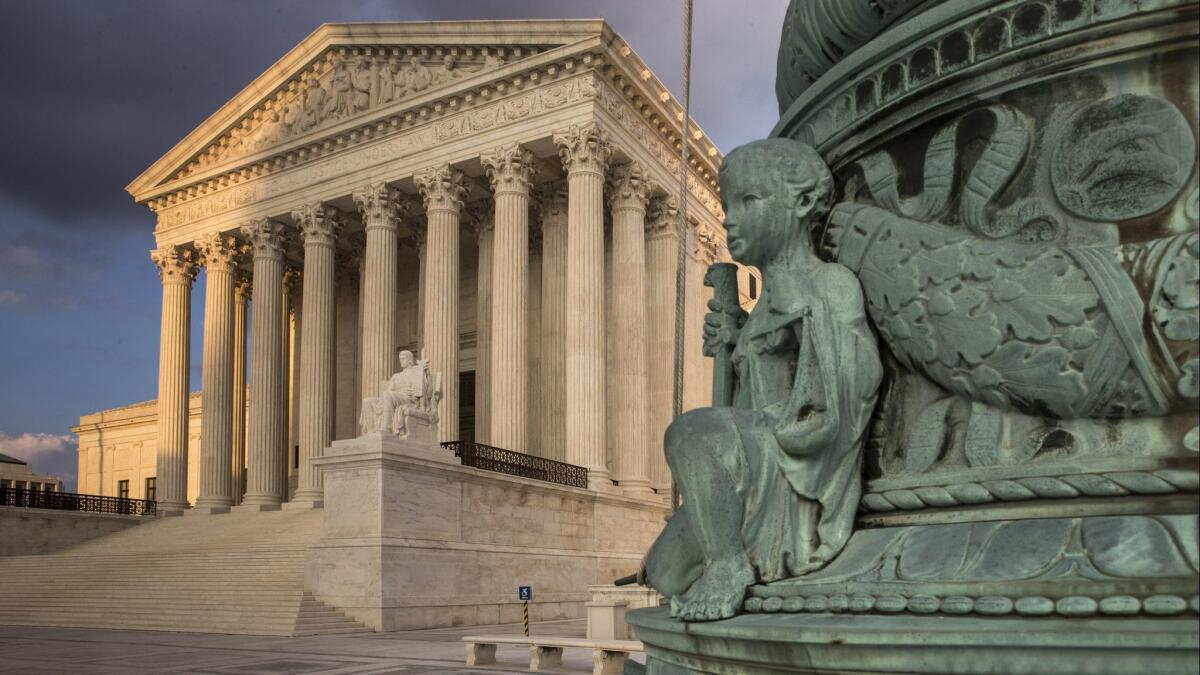Opinion: A juror used the N-word. Did that taint a Georgia death sentence?

- Share via
Two lawyers representing Keith Tharpe visited some of the jurors who had sentenced the Georgia man to death in 1991 as part of their preparations for an appeal. And juror Barney Gattie gave them something noteworthy to work with.
Tharpe is black, Gattie is white. Gattie told the lawyers — and signed an affidavit — saying that he thought “there were two types of black people.” First were those Gattie called “black folks” and second were those he called the N-word. “I felt that Tharpe, who wasn’t in the ‘good’ black folks category in my book, should get the electric chair for what he did.” Gattie added: “After studying the Bible, I have wondered if black people even have souls.”
Gattie also said that “some of the jurors voted for death because they felt that Tharpe should be an example to other blacks who kill blacks, but that wasn’t my reason.”
Remarkably, no judge has ever reviewed whether those 1998 statements indicate that Tharpe’s race was a factor in the jury sentencing him to death, violating his 6th Amendment right to a fair trial. For more than 20 years.
What’s the holdup? In part, procedural rules and laws. For the legal wonks among you, Tharpe’s argument and the history of his case is laid out here.
The short version is that “no impeachment” laws and court rules bar testimony about what occurred during jury deliberations to be cited as evidence in appeals, including, as laid out in the Federal Rule of Evidence, “any juror’s mental processes concerning the verdict or indictment.”
Enter the Fray: First takes on the news of the minute »
That changed somewhat under a 2017 court ruling, Pena-Rodriguez vs. Colorado, in which the Supreme Court held that the no-impeachment rule cannot apply in cases in which jurors later say they relied on racial stereotypes to make their decisions.
As SCOTUSBlog sums up the decision: “The 6th Amendment requires that the no-impeachment rule give way in order to permit the trial court to consider the evidence of the juror’s statement and any resulting denial of the jury trial guarantee.”
Which brings us to the Tharpe case. The Supreme Court will discuss Friday morning whether to accept Tharpe’s appeal asking the nine justices to order a lower court to consider whether Gattie’s affidavit and statements — and other possible bias among jurors — tainted Tharpe’s trial.
Note that the issue before the Supreme Court is not whether Tharpe deserves a new trial, but whether a lower court must hear his argument that his constitutional rights were violated.
Capital punishment is a barbaric, medieval holdover that relies on an imperfect, easily manipulated system.
This is a matter of fundamental justice that becomes even more significant when the sentence at hand is death.
Capital punishment is a barbaric, medieval holdover that is arbitrarily imposed under an imperfect, easily manipulated system.
But if we allow the government to exert this power, we must demand that constitutional rights be preserved (that there is no guarantee is a strong argument against a system that determines who lives or dies).
The Supreme Court ought to take this case and ultimately order lower courts to, finally, do the right thing and hear Tharpe’s appeal.
More to Read
A cure for the common opinion
Get thought-provoking perspectives with our weekly newsletter.
You may occasionally receive promotional content from the Los Angeles Times.







